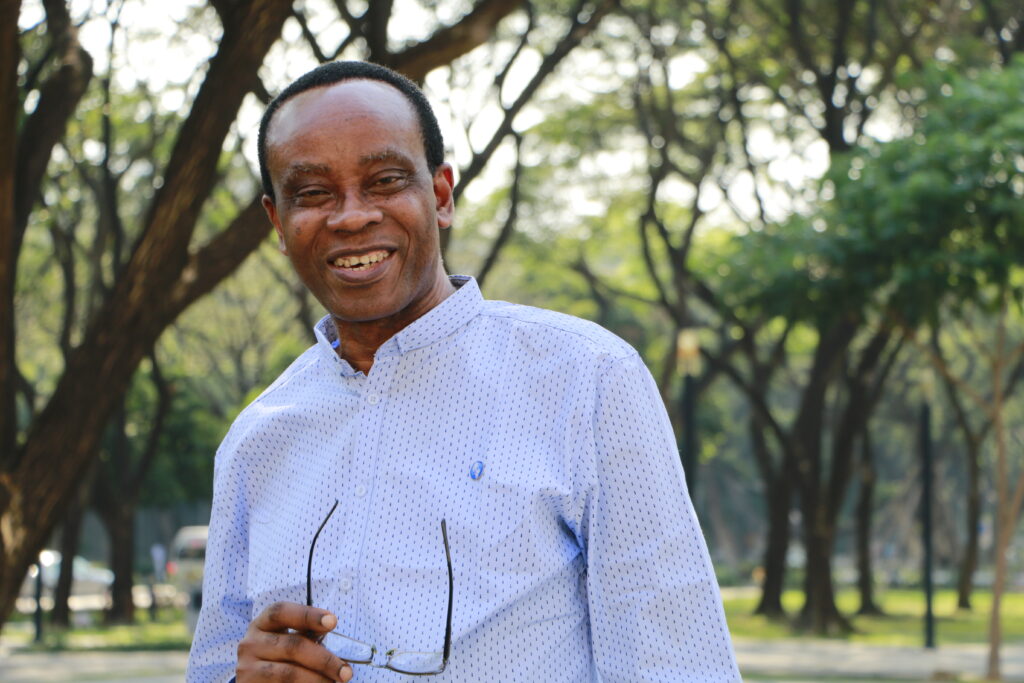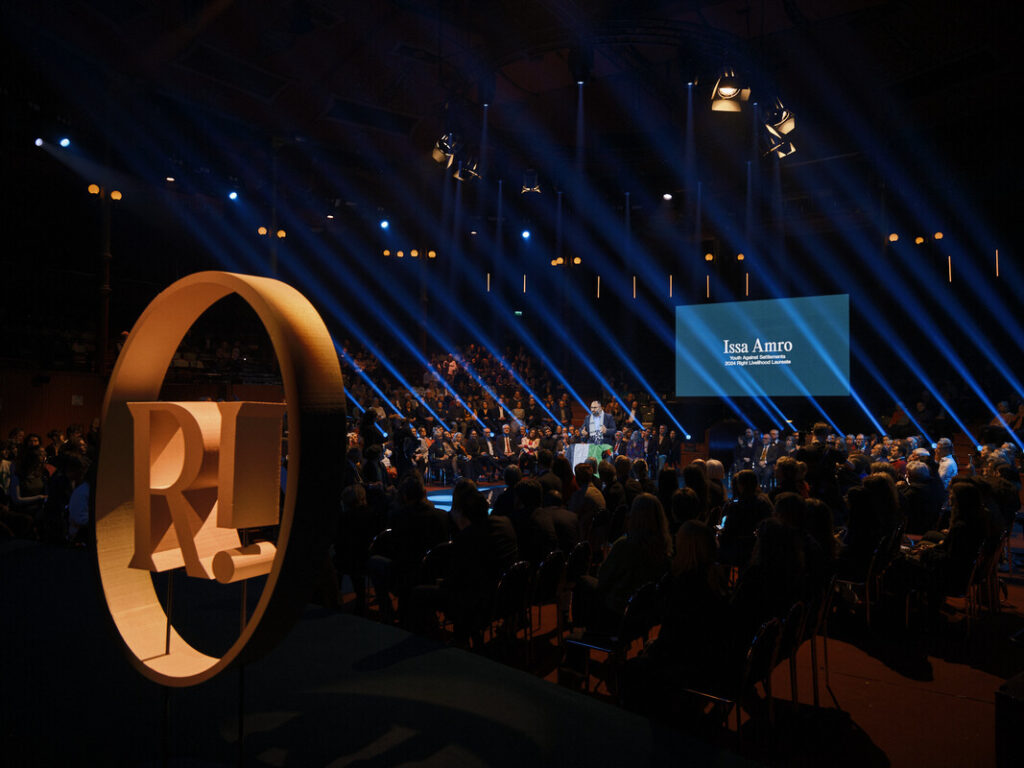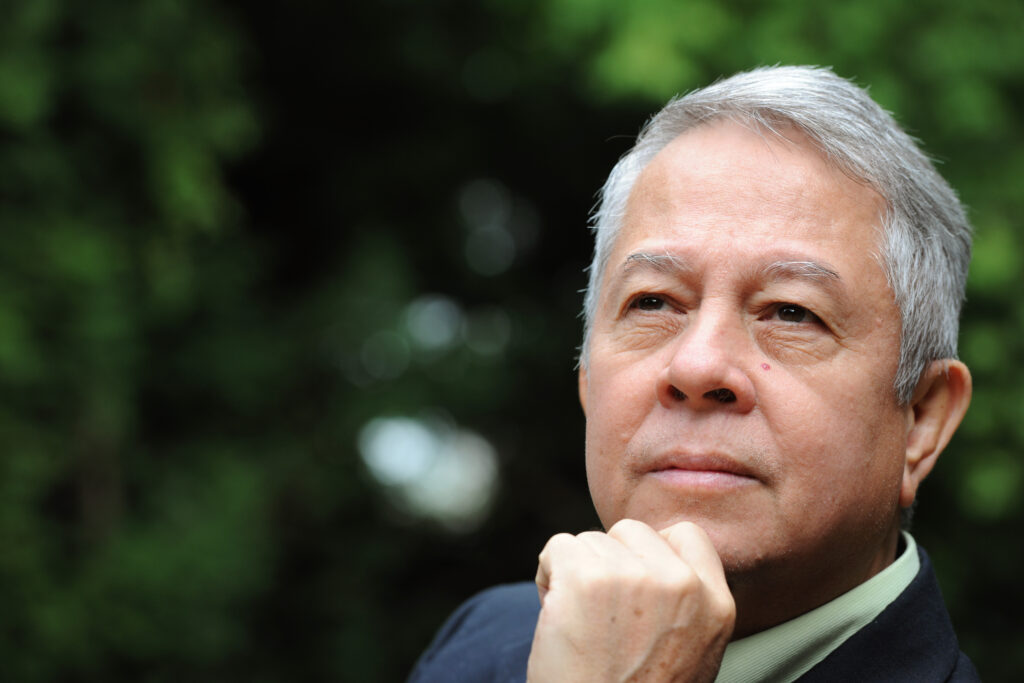What does it mean to treat education as a form of resistance, especially when access to learning is denied as a means of control?
In this exchange, 2012 Right Livelihood Laureate Dr Sima Samar and Jamila Raqib, Executive Director of the Albert Einstein Institution and legacy holder of 2012 Laureate Dr Gene Sharp, sat down for a candid, peer-to-peer conversation on how education is both weaponised and reclaimed in contexts of conflict and repression. Speaking directly to one another, they reflect on the rise of what Samar calls “education apartheid” and share urgent, decentralised strategies for keeping knowledge alive—from underground schools to civic education via mobile phones.
Samar, former Afghan Minister of Women’s Affairs, has defended girls’ education under regimes intent on silencing them. Raqib supports grassroots organisers around the world in applying nonviolent strategies—including the 198 methods of nonviolent action—to confront repression and expand civic space.
This conversation took place in March 2025 during the UN Commission on the Status of Women in New York.
Jamila:
We always talk about education as having transformative potential, but we need to ask, transformative for whom? And toward what end? I’ve found that even in the most repressive environments, people are seeking knowledge, not just formal education, but the kind that empowers them to act, organise and resist. That’s the kind of education I’m interested in.
At the Albert Einstein Institution, we work with people fighting for freedom, justice and dignity. They’re often already incredibly brave and creative. But they don’t always have access to information that can make their efforts more effective. That’s why I believe education is not just a right, it’s a tool. And when that tool is denied, it’s because it has real power.
Education empowers people to be citizens of a society, to make contributions… to hold their governments accountable. Education is political. And for women, it’s also survival.
Sima:
Yes, I fully agree. But we have to be very clear, what education are we talking about? Because education can also be misused. In Afghanistan, I saw it up close. The Taliban established more than 21,000 madrasas, many with financial support from abroad. Families, desperate and without access to health care or income, would send their sons to these institutions. And those children were trained, not in the values of human rights or critical thinking, but in hatred and violence.
So we need education that teaches equality. That teaches girls and boys they are equal. That includes human rights and the capacity to think for oneself. If education becomes just another instrument of ideology, it loses its liberating power. Denying girls education is gender apartheid.
Jamila:
Exactly. I think we sometimes forget that education itself is political: what is taught, who gets to teach, who gets access. When we talk about educating girls in conflict zones, we’re not just fighting for school buildings. We’re fighting against structures that see empowered women and girls as a threat.
That’s why I also look at decentralised solutions. What happens when the state fails or actively blocks access to education? We can’t wait. Communities already know how to adapt when the government doesn’t provide food or security. We need to apply that same urgency and creativity to education.
In many parts of the world, education is withheld from girls not by accident, but by design. It is used as a tool to control, exclude or indoctrinate. For us, education is not just about schools. It’s about power: Who gets to imagine a future and who does not.
Sima:
And that’s what I call real resistance. In Afghanistan, girls are still studying, even underground. There are online schools, home-based education, secret classrooms. And they’re taking enormous risks to do it. But let’s be honest, the Taliban’s ban on girls’ education isn’t about logistics or security. It’s about control. It’s a crime against humanity, and it should be treated as such.
And yet, the world’s response has been very weak. There’s plenty of sympathy, but very little action. I always say, if a girl can’t go to school in Kabul, it’s not just her problem. It’s a global problem.
Jamila:
Yes. And I often think, what kind of political will would it take to really change that? Because we’ve seen that when powerful actors want to intervene, they find a way. So the question is not whether we can support girls’ education. It’s whether we choose to.
And in the meantime, we need to educate in every possible way: civic education, nonviolence, resistance. Not just in universities, but in communities. Even in short videos or WhatsApp messages. That’s what we do, because people are looking for tools. They want to know: What can I do? What do I still have control over?
Sima:
I remember someone told me a story. A preschool teacher asked, “How many immigrants are in your class?” And a little boy said, “We’re all children.” That’s the kind of education we need, starting from the earliest age. Teaching dignity, not division. Respect, not fear.
But it’s not only in schools. The media also educates. And often, it reinforces inequality, showing women as objects, not people. So we need to think about the whole ecosystem of education, formal and informal, and ask: Is this helping us build a more just and peaceful society?
Jamila:
Absolutely. And we need to resist the idea that education is neutral. It never has been. It either reinforces the system as it is, or helps people imagine something better.
Sima:
And imagining something better. That’s the beginning of real change.




























































































































































































































































































































